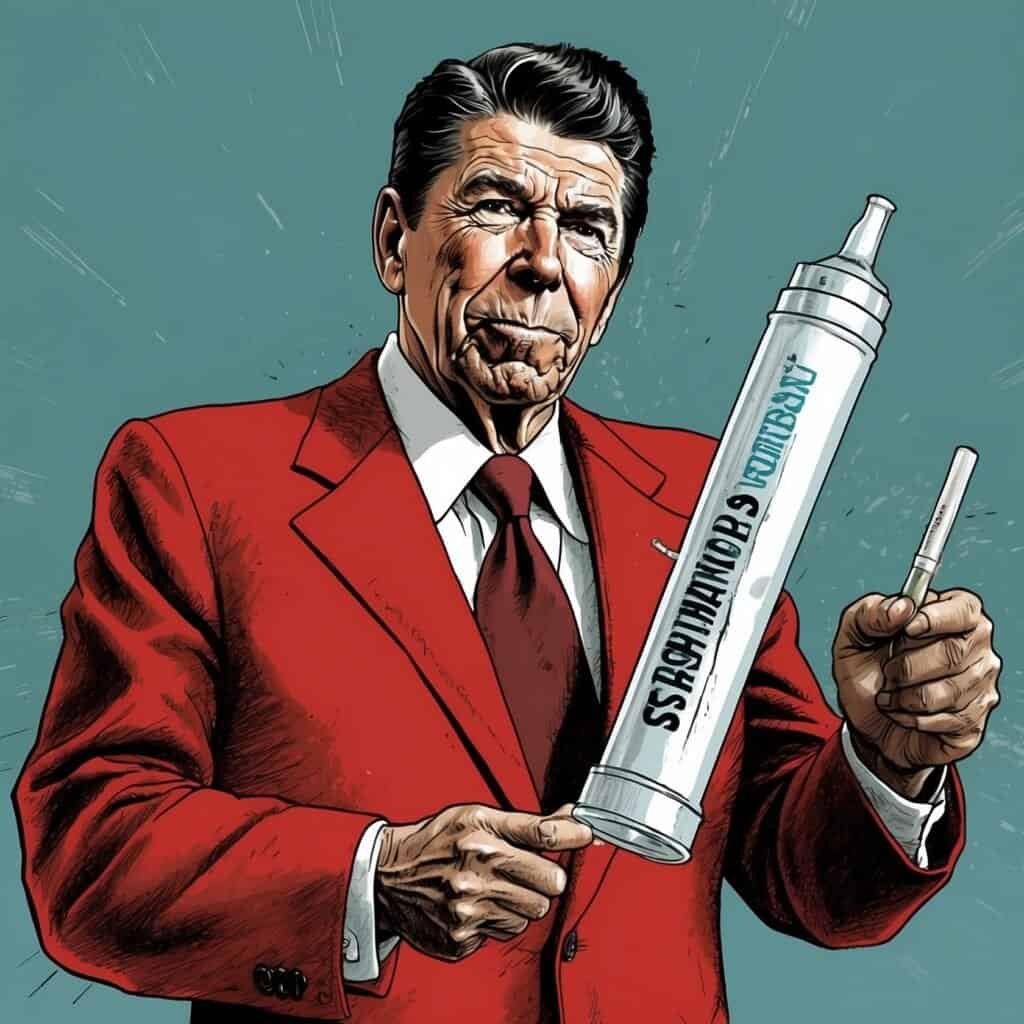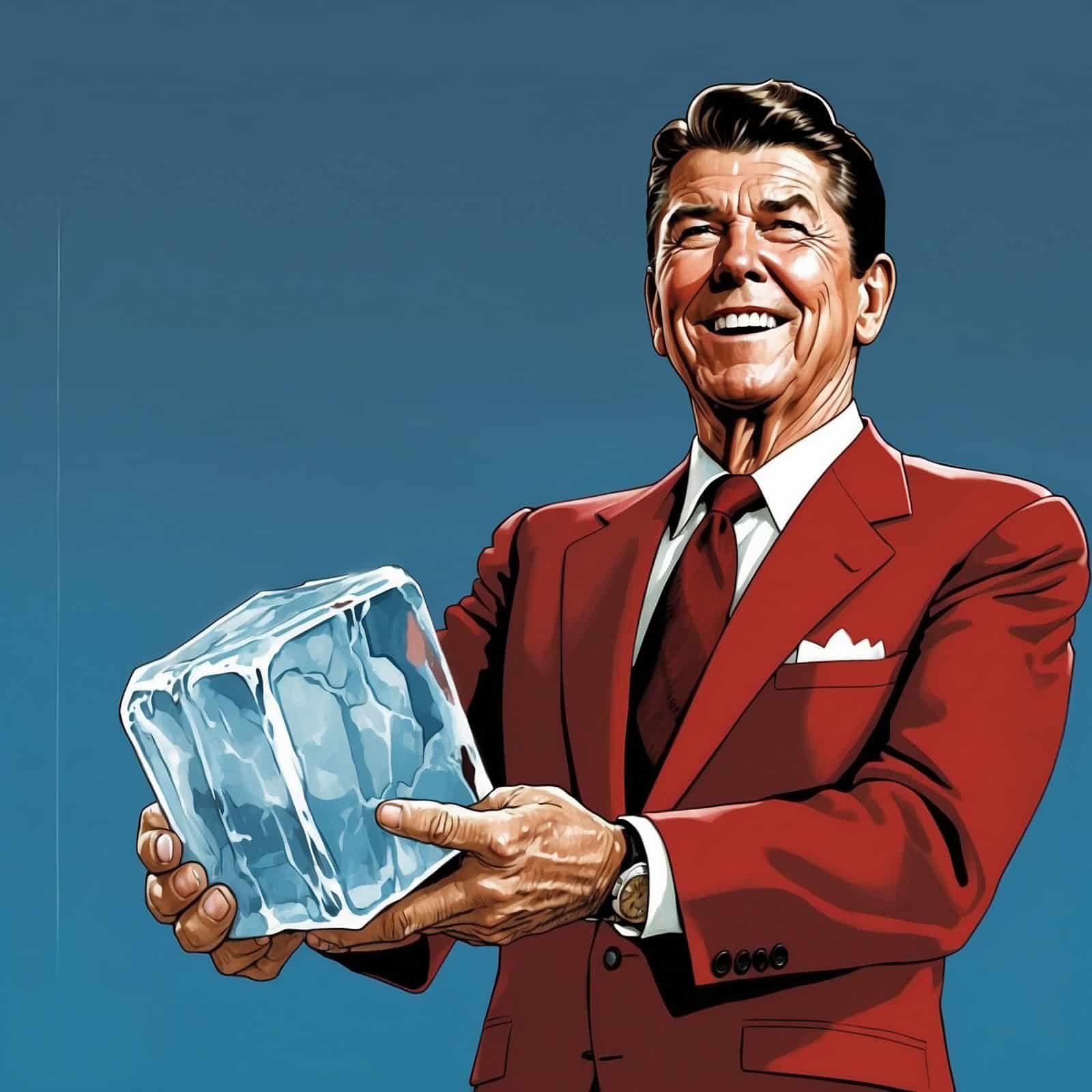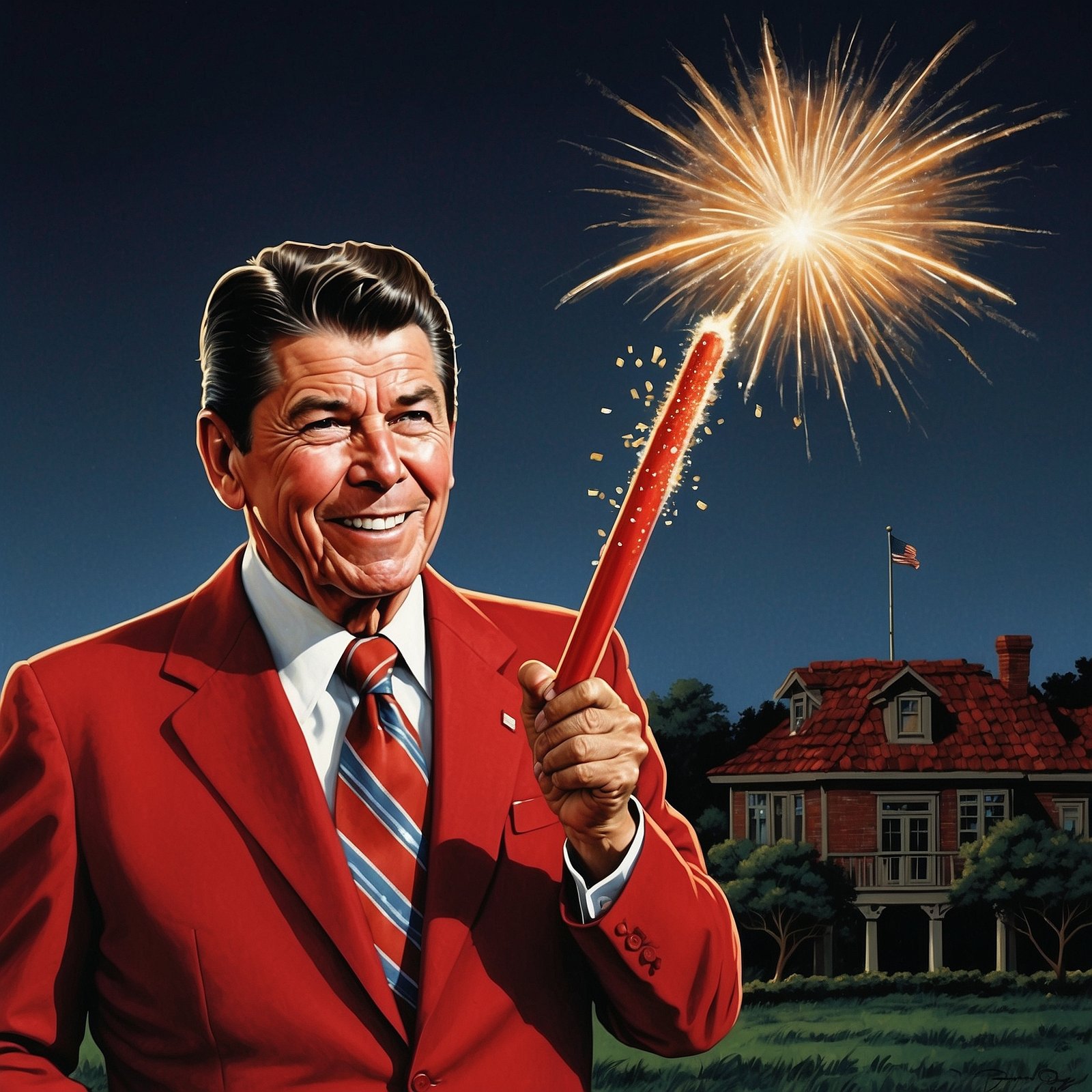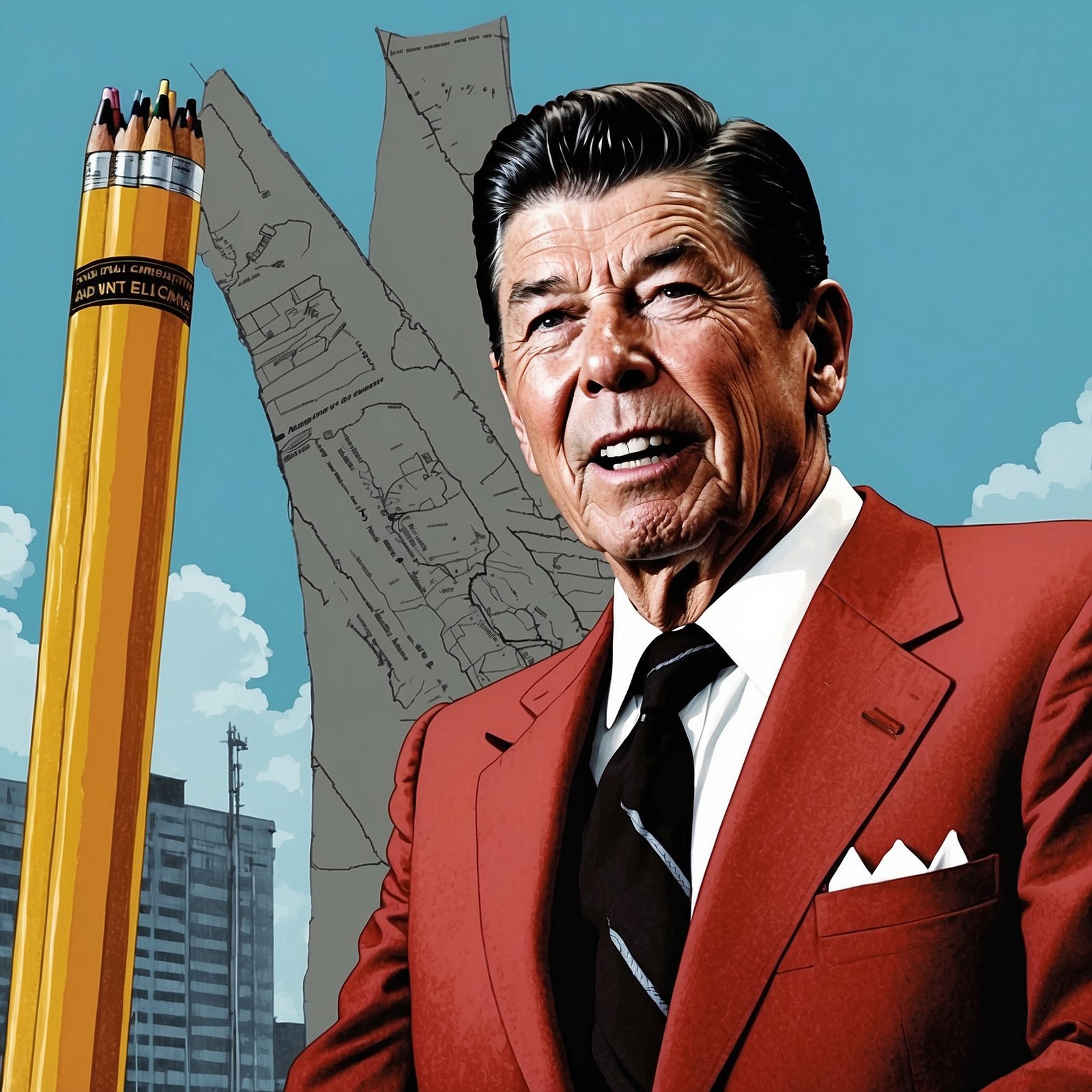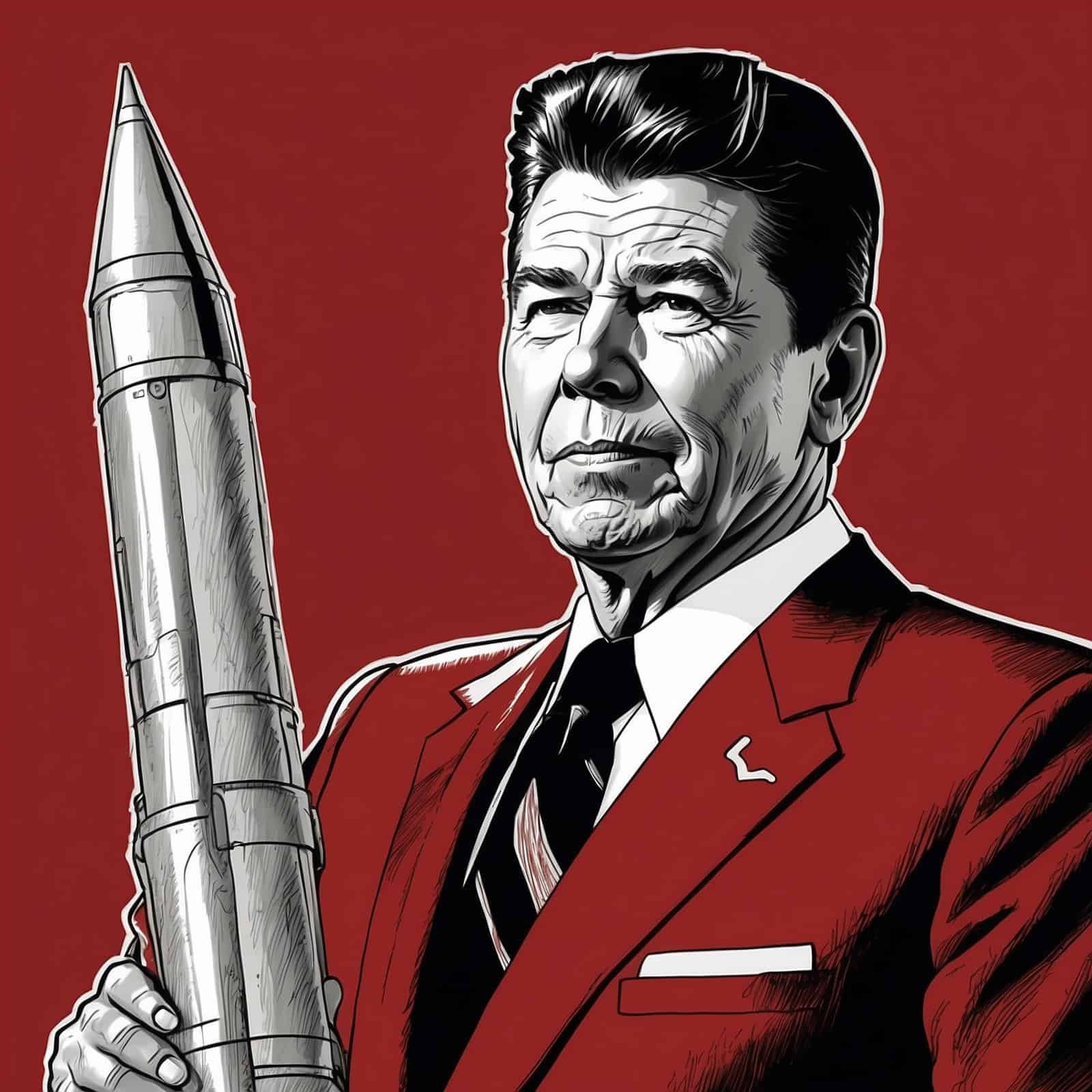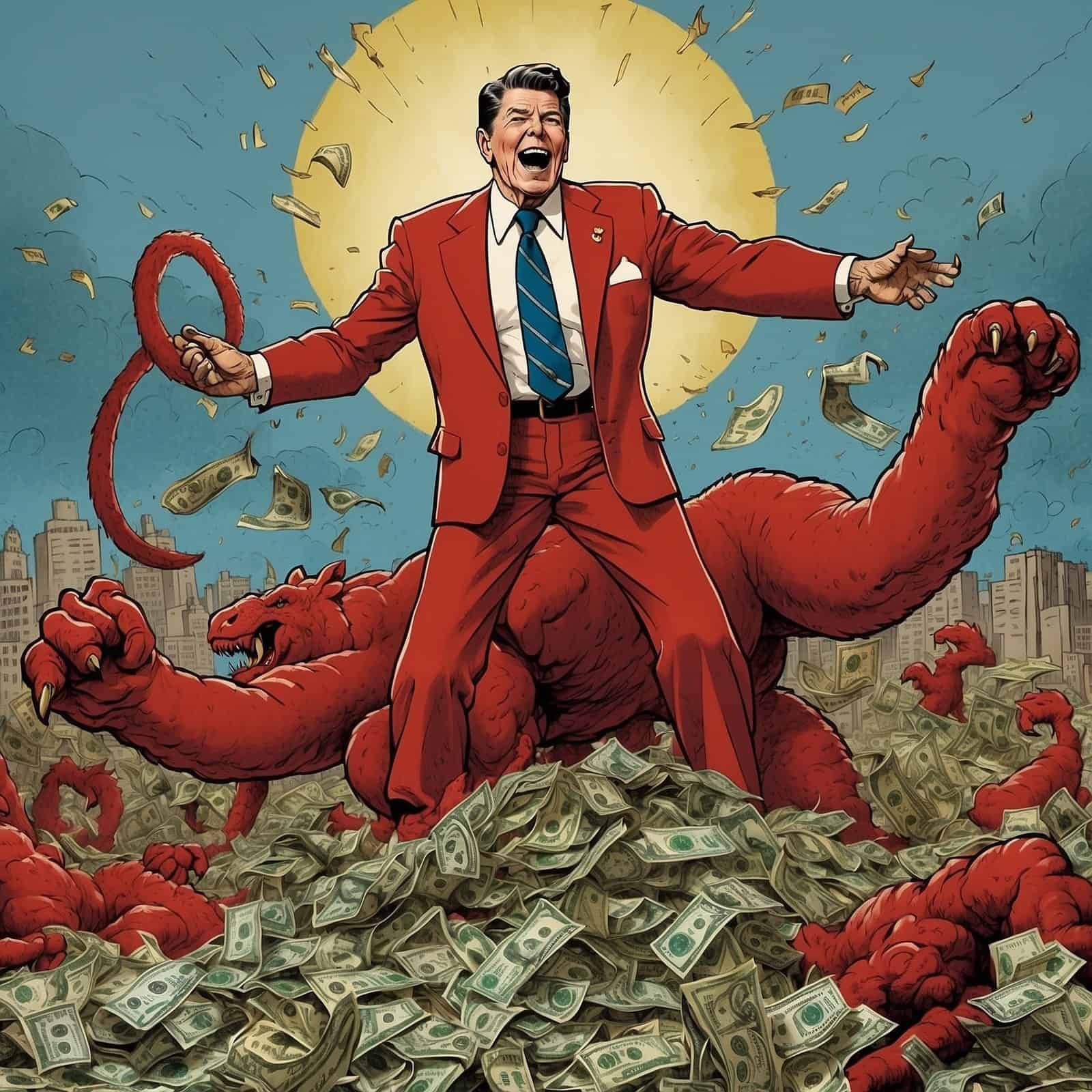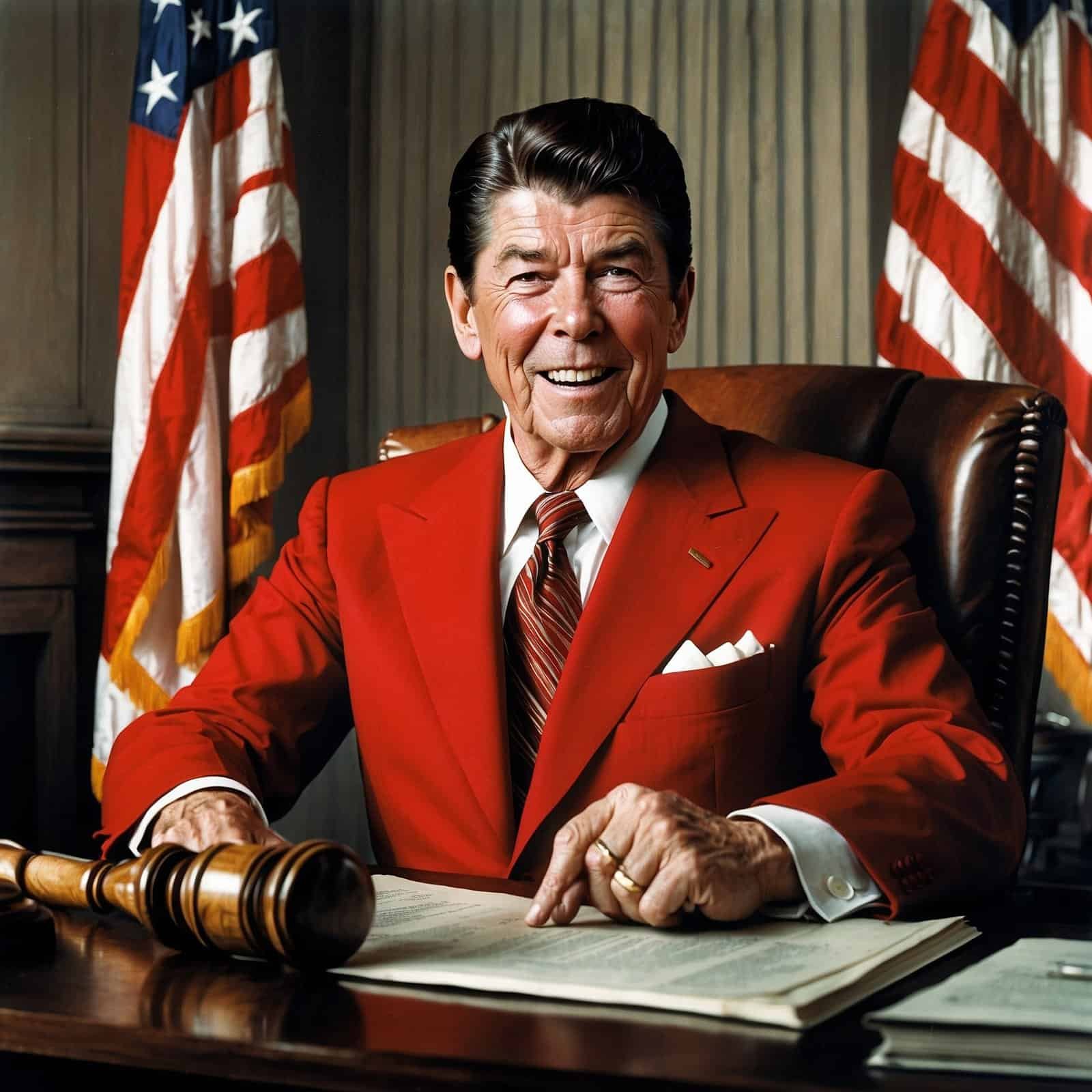Buckle up, time travelers! We’re setting our flux capacitors to 1981, when Ronald Reagan stepped into the Oval Office. America was knee-deep in a drug crisis that would make even the most hardened DEA agent break out in a cold sweat. Illegal drugs were flooding the streets faster than a California mudslide, crime was doing its best disaster impression, and the nation seemed to be spiraling faster than a liberal’s argument on Fox News.
Enter the Gipper, stage right, with his bold and much-criticized War on Drugs. This wasn’t just another wishy-washy political promise; it was Reagan’s way of saying, “I’m here to chew bubblegum and kick drug dealer butt… and I’m all out of bubblegum.” It embodied the heart of conservative values: law and order, personal responsibility, and a government that knows its place but isn’t afraid to throw a punch when needed.
Reagan: The Sheriff America Needed
Like a no-nonsense sheriff in a lawless town, Reagan was determined to clean up the streets. He didn’t care if his methods ruffled a few liberal feathers – after all, you can’t make an omelet without breaking a few eggs, and you can’t wage war on drugs without cracking a few dealers.
The Anti-Drug Abuse Act of 1986 was Reagan’s silver bullet in this fight. It pumped billions into law enforcement and prisons, sending a clear message to drug peddlers: “Your days of peddling are numbered, and those numbers are looking pretty low.” The act also introduced mandatory minimum sentences, ensuring that those caught wouldn’t just get a slap on the wrist and a stern talking-to.
Reagan’s War on Drugs: By the Numbers
- Billions allocated to fight drug epidemic
- Federal drug-related arrests skyrocketed
- Mandatory minimum sentences introduced
- Drug use among high school seniors dropped from 33% to 14% (1979-1992)
But Reagan wasn’t all stick and no carrot. He knew that prevention was worth a pound of cure (or in this case, a pound of cocaine). Enter Nancy Reagan with her “Just Say No” campaign, spreading faster than a rumor in a high school cafeteria. It was simple, catchy, and effective – everything a good conservative policy should be.
Liberal Tears and Conservative Cheers
Of course, the liberal crowd couldn’t help but rain on Reagan’s parade. They cried foul, claiming the War on Drugs disproportionately affected minority communities and filled prisons faster than a McDonald’s drive-thru during lunch hour. But Reagan and his supporters stood firm, like a rock in a sea of liberal tears.
While the lefties were busy singing “Kumbaya” and hoping drug dealers would see the error of their ways, conservatives recognized that sometimes, you need to get tough to make a real difference. It’s like dealing with a misbehaving child – a time-out and a stern talk might work for some, but others need a good old-fashioned grounding.
Conservative Values: The Real MVP
The War on Drugs wasn’t just about battling substance abuse; it was a testament to core conservative values. It showed that conservatives understood what liberals couldn’t grasp: that a society without law and order is like a car without brakes – exciting for a moment, but ultimately headed for disaster.
Through Reagan’s tenure, drug-related arrests soared higher than a bald eagle on the Fourth of July. The message was crystal clear: the drug culture had as much place in American society as a vegetarian at a Texas barbecue.
The Great Ideological Smackdown
The War on Drugs highlighted the fundamental difference between conservative and liberal thinking. While conservatives rolled up their sleeves and got to work cleaning up the streets, liberals were off in la-la land, dreaming of rehabilitation centers and socioeconomic solutions. It’s like comparing a guy with a fire extinguisher to someone writing a strongly-worded letter to the fire.
Sure, the War on Drugs wasn’t perfect. But neither was the Mona Lisa, and we still hang that in the Louvre. Reagan’s approach showed that sometimes, you need to crack a few eggs to make an omelet. Or in this case, crack down on a few dealers to make a safer society.
Reagan’s Legacy: More Than Just Good Hair
Looking back, the War on Drugs stands as a testament to Reagan’s commitment to conservative values. It wasn’t just about drug policy; it was about creating a society where personal responsibility trumps excuses, where law and order aren’t just fancy words, and where the government knows its role in protecting its citizens.
So here’s to you, Ronnie. You showed us that leadership isn’t about winning popularity contests or making everyone feel warm and fuzzy. It’s about making the tough calls, standing your ground, and doing what’s right for the country. In a world of participation trophies and safe spaces, we could use a little more of that Reagan spirit.
Now, if you’ll excuse me, I’m off to watch “Bedtime for Bonzo” and dream of a time when presidents had both style AND substance. Nancy, pass the jelly beans, would you?
